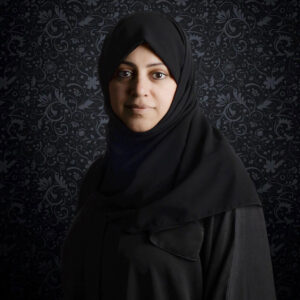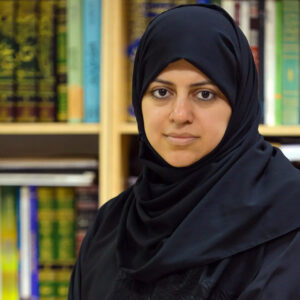Nassima al-Sadah
Credentials
Humanitarian Cause
Human Rights, Community Sensitization on Human Rights and Civic Engagement, Gender Equality, Human Rights Advocacy, Minorities’ Rights, Policy and Legislation Improvement, Promotion of Equality and Inclusion, Women’s Rights
Impact Location
Saudi Arabia
Occupation
Lawyer / Human Rights Defender and Women’s Rights Activist
Photo Gallery
About
Nassima al-Sadah is a prominent Saudi Arabian human rights activist, known for her tireless advocacy for women’s rights. She has been at the forefront of campaigns to challenge Saudi Arabia’s repressive guardianship system, demand the right for women to drive, and push for broader civil and political rights in the kingdom. Her efforts have earned her recognition as a fierce advocate for gender equality and an outspoken critic of systemic discrimination in her country. Despite facing severe consequences, including imprisonment and harassment, Nassima has remained steadfast in her commitment to protecting human rights.
Nassima’s activism dates back to 2011, when she sued the Saudi government to demand that women be allowed to stand as candidates in municipal elections. Though her lawsuit was not successful, it marked the beginning of her public battle for women’s rights in Saudi Arabia. She later attempted to run for office herself in the 2015 municipal elections, but authorities barred her from participating. This setback did not deter her; she continued to fight for women’s political participation and greater autonomy, becoming a central figure in the campaign to abolish the longstanding ban on women driving.
Her work extended beyond gender rights; she also advocated for the Shia Muslim minority in Saudi Arabia, addressing the community’s systemic marginalization and human rights abuses. Nassima co-founded the Adala Centre for Human Rights, an NGO aimed at promoting civil rights in Saudi Arabia. The government refused to license the organization.
Throughout her career, Nassima has been recognized not only for her advocacy against the driving ban but also for her efforts to dismantle the male guardianship system, which binds Saudi women to seek the permission of a male relative for essential life decisions. Her persistent calls for the protection of Saudi Arabia’s Shia minority have also highlighted the religious discrimination that persists in the country, a subject rarely discussed publicly due to the pressure from the Saudi government.
Nassima’s activism led to her detention in July 2018 as part of a broader crackdown on women’s rights activists in Saudi Arabia. Her arrest occurred just weeks after the ban on women driving was lifted, a reform she had long campaigned for. Despite this major victory for women’s rights, Saudi authorities targeted the activists who had worked for these reforms, accusing them of having suspicious foreign contacts and undermining national security. Nassima was imprisoned without charge or trial and held in solitary confinement from February 2019 to the beginning of 2020. During this time, she endured mistreatment, was denied access to her lawyer, and had limited contact with her family.
Her imprisonment, alongside other female activists, garnered international attention. Human rights organizations, including Amnesty International and Human Rights Watch, launched campaigns calling for her release, highlighting the Saudi government’s crackdown on dissent. Despite international pressure, Nassima remained in prison, and in November 2020, she was sentenced to a five-year prison term, followed by a five-year travel ban. The charges against her were based on the kingdom’s cybercrime laws, but the authorities failed to specify the exact nature of the crimes she was accused of.
In June 2021, Nassima was conditionally released, but she remains under a five-year travel ban and is prohibited from speaking publicly about her experiences. Despite these limitations, her legacy as a courageous defender of women’s rights and minority rights in Saudi Arabia remains intact, and her work continues to inspire activists both within the kingdom and globally.
In addition to her activism, Nassima al-Sadah is a writer and educator who has focused much of her work on training young people in human rights advocacy. She has been an outspoken columnist, pushing for an end to violence against women, political participation, and greater civil liberties in the kingdom. Her writing has offered a rare and powerful voice in a country where free expression is tightly controlled, and public dissent is often met with harsh penalties. She remains a symbol of the ongoing fight for women’s rights and broader human rights in Saudi Arabia, even as she is denied the freedom to continue her activism without fear of retribution.


